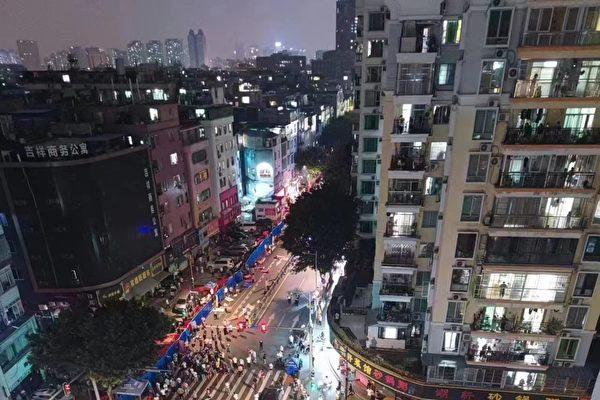Unable to bear lengthy lockdowns and lack of food, daily necessities, and timely medical treatment, large crowds of people in China’s southern commercial hub of Guangzhou took to the streets on Monday.
Video clips and online posts showed people tearing down fences and barricades and marching down the streets in the Haizhu District of Guangzhou until they were stopped by checkpoints and police.





